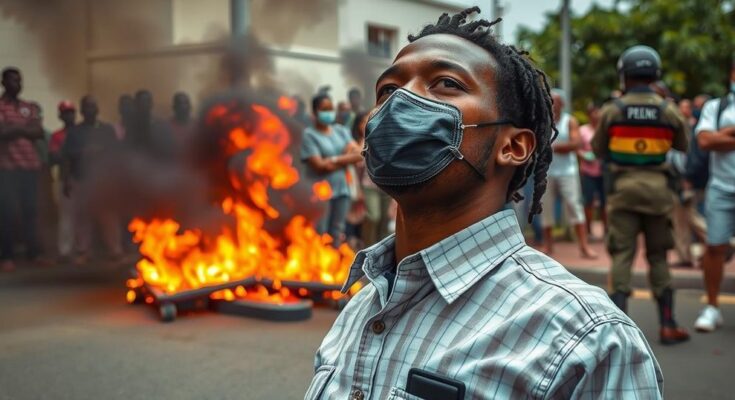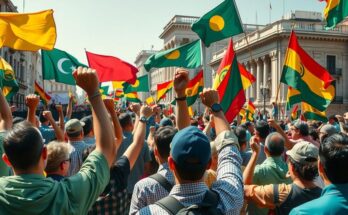The confirmation of Daniel Chapo’s victory in Mozambique’s disputed elections has led to violent protests, resulting in at least 21 deaths, including police casualties. This unrest reflects rising tensions following allegations of electoral fraud, particularly among supporters of the defeated candidate, Venancio Mondlane.
Mozambique is currently experiencing severe upheaval following the endorsement of the ruling Frelimo party’s presidential candidate, Daniel Chapo, as the victor in the recently disputed elections held on October 9. The country’s highest court confirmed Mr. Chapo’s 65 percent of the vote against his competitor, Venancio Mondlane, who obtained only 24 percent. In the wake of this judicial decision, violent protests erupted across the nation, resulting in at least 21 fatalities, including two police officers, as reported by the authorities on Tuesday.
Pascoal Ronda, Mozambique’s Interior Minister, addressed the media in Maputo, stating that the unrest was predominantly instigated by youthful supporters of the defeated candidate Mondlane. Ronda noted that within a 24-hour period, there were 236 recorded instances of violence nationwide, leading to numerous injuries among both civilians and police personnel.
The situation marks a significant escalation of political strife in Mozambique, where tensions had already been high due to allegations of electoral fraud and irregularities. The court’s decision to uphold the election results, despite claims of misconduct, has ignited widespread discontent, particularly among the youth, who are increasingly expressing their frustration with the political status quo.
Mozambique has a history of political instability that often surfaces during election periods. The recent elections have been marred by accusations of fraud, leading to deep divisions among the populace. In this context, the recent ruling by the courts has further amplified tensions, particularly among supporters of the opposition. The Frelimo party, having been in power since the end of a civil war in 1992, continues to face challenges from various factions, including protests and violent demonstrations.
In summary, the recent confirmation of election results in Mozambique has triggered a wave of violence and civil unrest throughout the country. With 21 casualties reported, including police officers, the response to these court rulings illustrates the profound dissatisfaction among segments of the population, particularly the youth. The ongoing violence underscores the critical need for dialogue and reconciliation to address the underlying issues of electoral integrity and political representation in Mozambique.
Original Source: www.nytimes.com




